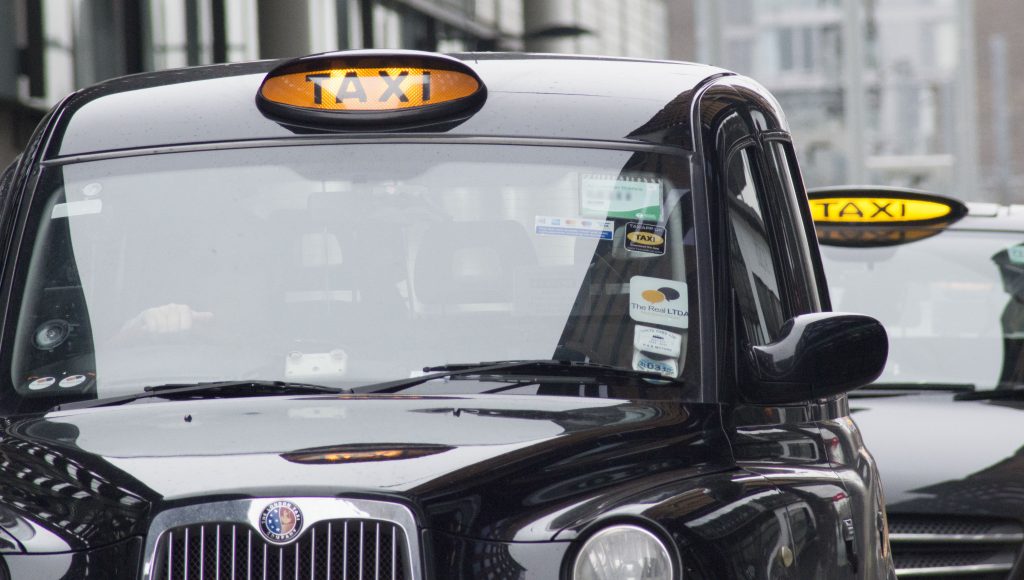Taxi and minicab licensing is once again in the spotlight, with The Times newspaper publishing an investigation into alleged failures by local authority licensing committees that raise potentially serious safeguarding concerns.

The investigation, which was published in the newspaper over two days last week and included front-page headlines on both days, described how councils have been accused of putting public safety at risk by handing out thousands of licenses to taxi and minicab drivers across the country while in some cases failing to monitor criminal records.
One of the areas whose local authority has been most heavily criticised by The Times is Wolverhampton, where sales of private hire licences have risen from 852 in 2015, to 9,388 this year – 8000 of these being to drivers who do not live or work in the city.
An Ongoing Debate
This is not the first time that this dramatic increase in Wolverhampton license applications has been noted – we covered this very issue earlier this year, in relation to a decision by TfL regarding Uber’s licence to operate in London.
This latest investigation by The Times reiterates the perception that taxi licences are easier to obtain in Wolverhampton, describing the local authority as the “council of choice for aspiring drivers in need of a quick and easy license”.
However, while it is certainly the case that Wolverhampton charges less for its license applications, and with its fully digital application system, tends to process them faster, it would not be fair to say that they are a soft touch.
For example, in the recent case of a taxi driver who had briefly fallen asleep at the wheel and crashed into an empty parked car, Wolverhampton’s licensing committee had the option of either suspending his license and sending him on a course, or removing his license altogether. In this case, they took the harder line and removed the driver’s license to operate.
Clearly, there has been a marked increase in the number of taxi licenses issued in Wolverhampton. But drivers can hardly be criticised for choosing to go to an authority that will charge less, process the application faster, and is more likely to grant a licence.
The fact is that the existing system of local regulation is inadequate. With each authority having its own set of rules, the system is left open to abuse, and not just by drivers. The investigation by The Times highlights a situation that has long had a blind eye turned towards it – the interference by local councillors in the decisions made by licensing committees.
The Times reports how in Birmingham, there has been “a tradition of councillors helping applicants to obtain taxi licenses,” and that in some cases, councillors had “asked officials to ‘reconsider decisions’ about refusing taxi licenses, even though the correct procedure was for an applicant to make a formal appeal.”
Time for a Change in Regulation
The obvious solution to the issues raised by this latest investigation is one that we have pointed to before – the implementation of a national system of taxi licensing regulation, similar to that used for HGVs and coaches.
The Traffic Commissioners for the UK (not just England and Wales) have a huge amount of authority and autonomy, and their own system of public inquiries in which they can make findings of fact about drivers’ suitability.
The introduction of such a system for taxis is certainly not beyond the bounds of possibility. The Times reports that The Institute of Licensing, who has published its own guidelines on assessing applicants, believes that “a change in regulations is long overdue”, and that government ministers “are also thought to support a national database for private-hire drivers and will consider new legislation.”
This latest investigation is yet another damning indictment of the unsuitability of the current licensing system in the UK. As is astutely pointed out by The Times, “in an era of smartphones and Uber, the principal legislation for taxis dates from 1847 and 1976.”
It’s time to bring taxi licensing regulation in line with the modern world.
For more information on all taxi licensing matters, contact Regan or Gemma at info@reganpeggs.com, or call 0121 201 3765.
- UK Motoring Offence Stats: A Closer Look at the Numbers - October 26, 2023
- Are Sat Navs Excuses for Motoring Offences? - October 4, 2023
- Is divorce always 50/50? - August 2, 2023


Leave a Reply
You must be logged in to post a comment.